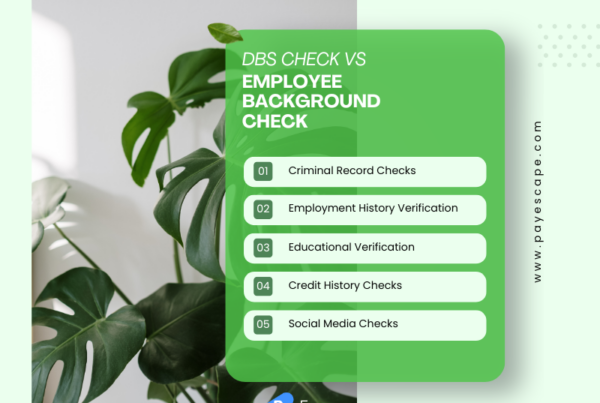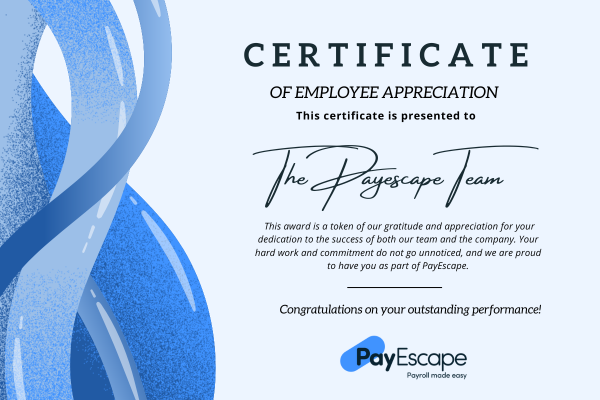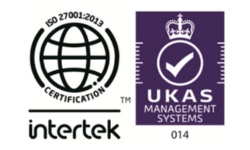Mentoring is one of the most effective strategies for professional development, helping both employees and businesses grow. As a business owner, understanding the value of mentorship and integrating it into your company’s culture can have a profound impact on staff performance, morale, and retention. With National Mentoring Day on the 27th of October, now is the perfect time to explore how mentoring can benefit your organisation and how PayEscape’s integrated HR systems can support your mentoring initiatives.
What is National Mentoring Day?
National Mentoring Day, celebrated annually on 27th October, was established to raise awareness of mentoring and to encourage more businesses and individuals to take part in it. This day provides an excellent opportunity for companies to reflect on the benefits of mentoring, not just for individual career growth but also for overall business success.
Why Mentoring Matters for Your Business
Mentoring plays a critical role in the personal and professional development of employees or those looking to start up a business. It helps staff members gain new skills, improve their performance, and align with company goals. Mentorship goes beyond day-to-day training; it offers guidance on career development, fosters innovation, and helps in overcoming challenges in the workplace.
For businesses, mentoring can result in:
- Increased employee engagement and job satisfaction
- Improved employee retention and reduced turnover
- Faster onboarding and integration for new hires
- Enhanced leadership development and succession planning
- A more collaborative and inclusive work environment
The Role of HR in Mentoring
HR plays an important role when it comes to establishing, managing, and nurturing mentoring programmes within organisations. HR is responsible for developing the structure of mentoring relationships, matching mentors with mentees, and providing the resources necessary for effective mentoring. If you are looking for HR services or an integrated software then PayEscape can help provide your business with our trusted HR Escape solution. You can book a free demo online today.
HR professionals can:
- Identify suitable mentors based on skills, experience, and leadership qualities
- Facilitate mentor-mentee matching using performance data and personality assessments
- Provide training for mentors to enhance their coaching and leadership abilities
- Monitor the progress and outcomes of mentoring relationships
- Encourage a culture of learning and knowledge-sharing within the organisation
How to Create a Successful Mentoring Programme
A successful mentoring programme requires careful planning and clear goals. As a business owner, you can collaborate with HR to develop a structured and measurable mentoring initiative. Key steps include:
- Define the Objectives: Determine the specific goals of your mentoring programme, whether it’s leadership development, skills training, or career advancement.
- Establish a Framework: Develop a structure for the programme, including the duration, frequency of meetings, and guidelines for mentor-mentee interactions.
- Select and Train Mentors: Choose experienced employees who are willing to serve as mentors. Provide them with training on effective mentoring techniques and communication skills.
- Match Mentors and Mentees: HR can use data from performance reviews and employee feedback to pair mentors with mentees who will benefit most from their guidance.
- Track and Evaluate Progress: Use regular check-ins, surveys, and performance metrics to measure the effectiveness of the mentoring programme and make necessary adjustments.
Mentoring Workshops and Training for Staff
Workshops and training are essential components of a mentoring programme, ensuring that both mentors and mentees are prepared for a successful partnership.
Training can cover topics such as:
- Effective Communication: Teaching mentors how to actively listen and provide constructive feedback to mentees.
- Goal Setting: Helping mentors and mentees set realistic, achievable goals and create action plans.
- Leadership Skills: Empowering mentors with the tools to guide and inspire others, while fostering leadership qualities in mentees.
- Conflict Resolution: Equipping mentors with strategies to handle potential challenges or disagreements that may arise during the mentoring process.
HR professionals can organise these workshops and offer ongoing support to ensure that both parties are getting the most out of the mentoring experience.
Remote Mentoring for a Hybrid Workforce
With the rise of remote work and hybrid workplace models, mentoring must adapt to ensure that all employees, regardless of location, receive the support they need. Remote mentoring can be just as effective as in-person mentoring with the right tools and strategies.
HR can implement virtual mentoring programmes using video conferencing, collaboration platforms, and digital tools to facilitate mentor-mentee interactions. By encouraging regular communication and utilising technology, businesses can ensure that remote employees have equal access to mentorship opportunities.
PayEscape’s Integrated Payroll and HR Support for Mentoring Programmes
Managing a mentoring programme can be complex, especially when it comes to tracking employee progress, time investment, and overall performance. PayEscape’s integrated payroll and HR solutions can simplify these processes by:
- Tracking Time and Attendance: Automatically tracking the time mentors and mentees dedicate to the programme, ensuring accurate compensation for time spent in mentoring sessions.
- Performance Data Management: Storing performance evaluations and feedback in a centralised system, allowing HR to easily assess the impact of mentoring on individual and team performance.
- Employee Self-Service Tools: Providing mentors and mentees with easy access to their personal development records, goals, and mentoring progress through the self-service portal.
- Customised Reports: Generating reports on the effectiveness of the mentoring programme, helping business owners and HR teams make data-driven decisions to improve or expand mentoring initiatives.
Mentoring for Leadership Development
Mentoring is particularly effective in preparing future leaders within your organisation. Leadership development programmes often include mentoring as a key component, where experienced managers or executives guide up-and-coming talent through the challenges of leadership.
Mentors can help mentees:
- Build confidence in decision-making
- Develop strategic thinking and problem-solving skills
- Enhance emotional intelligence and interpersonal communication
- Understand the nuances of managing teams and driving business success
Investing in leadership development through mentoring not only strengthens your leadership pipeline but also boosts overall organisational performance.
Mentoring and Employee Retention
Employee retention is a major concern for business owners, and mentoring can play a significant role in keeping your top talent engaged and motivated. Employees who feel supported, challenged, and valued through mentoring are more likely to stay with the company long-term.
Mentoring contributes to retention by:
- Providing employees with opportunities for growth and advancement
- Fostering a sense of belonging and connection to the organisation
- Encouraging continuous learning and skill development
- Offering guidance on career paths within the company
By integrating mentoring into your company culture, you can reduce turnover and create a more stable, committed workforce.
Mentoring for Diversity and Inclusion
Mentoring can also play a crucial role in promoting diversity and inclusion in the workplace. By pairing employees from diverse backgrounds with mentors who support their growth, businesses can create a more inclusive environment where all voices are heard and valued.
HR can lead initiatives to ensure that mentoring programmes are inclusive by:
- Actively promoting mentoring opportunities to underrepresented groups
- Ensuring diverse representation among mentors and mentees
- Encouraging open dialogue about challenges related to diversity in the workplace
- Providing mentors with training on cultural competence and inclusion
This approach can help break down barriers, foster innovation, and create a more equitable workplace for all employees.
Celebrate National Mentoring day with PayEscape
Mentoring is not just a one-time initiative; it’s a long-term investment in your employees and your business. By fostering a culture of mentoring, you empower your team to develop new skills, advance in their careers, and contribute to the success of your organisation.
PayEscape’s integrated payroll and HR solutions provide the tools you need to manage and support a mentoring programme efficiently. From tracking progress to managing performance data, PayEscape helps you streamline the process, allowing your HR team to focus on what matters most—nurturing the talent within your company.
This National Mentoring Day, take the opportunity to reflect on how mentoring can benefit your business. By making mentoring a priority, you create a supportive, growth-oriented environment that helps both your employees and your business thrive.


















